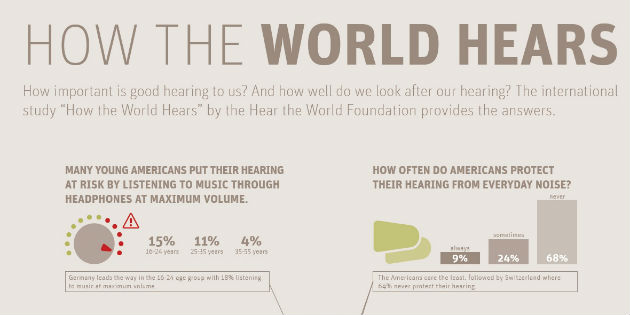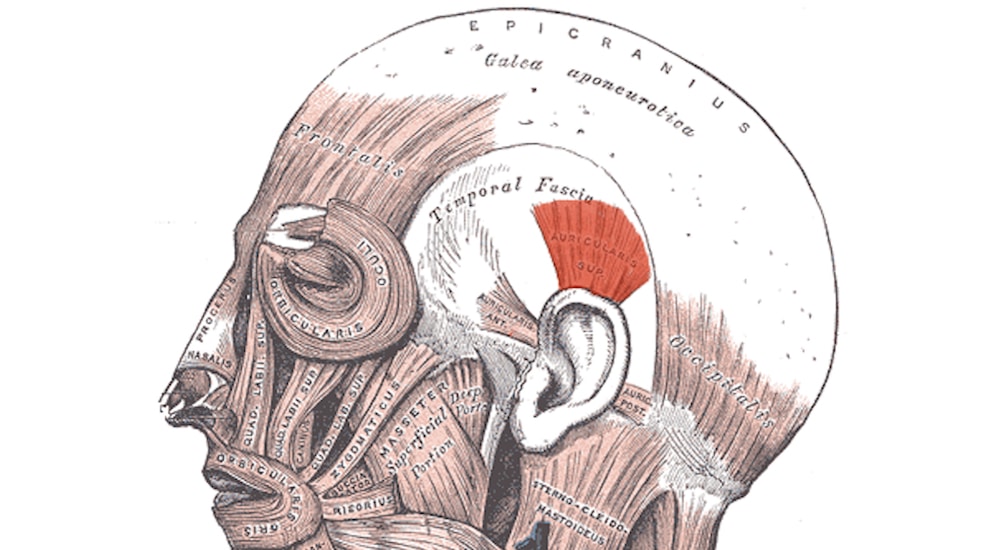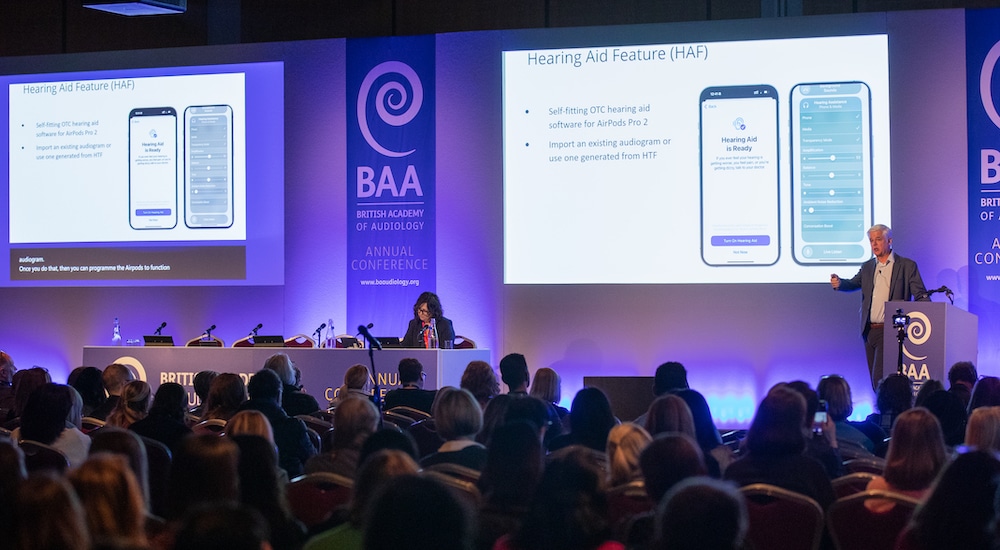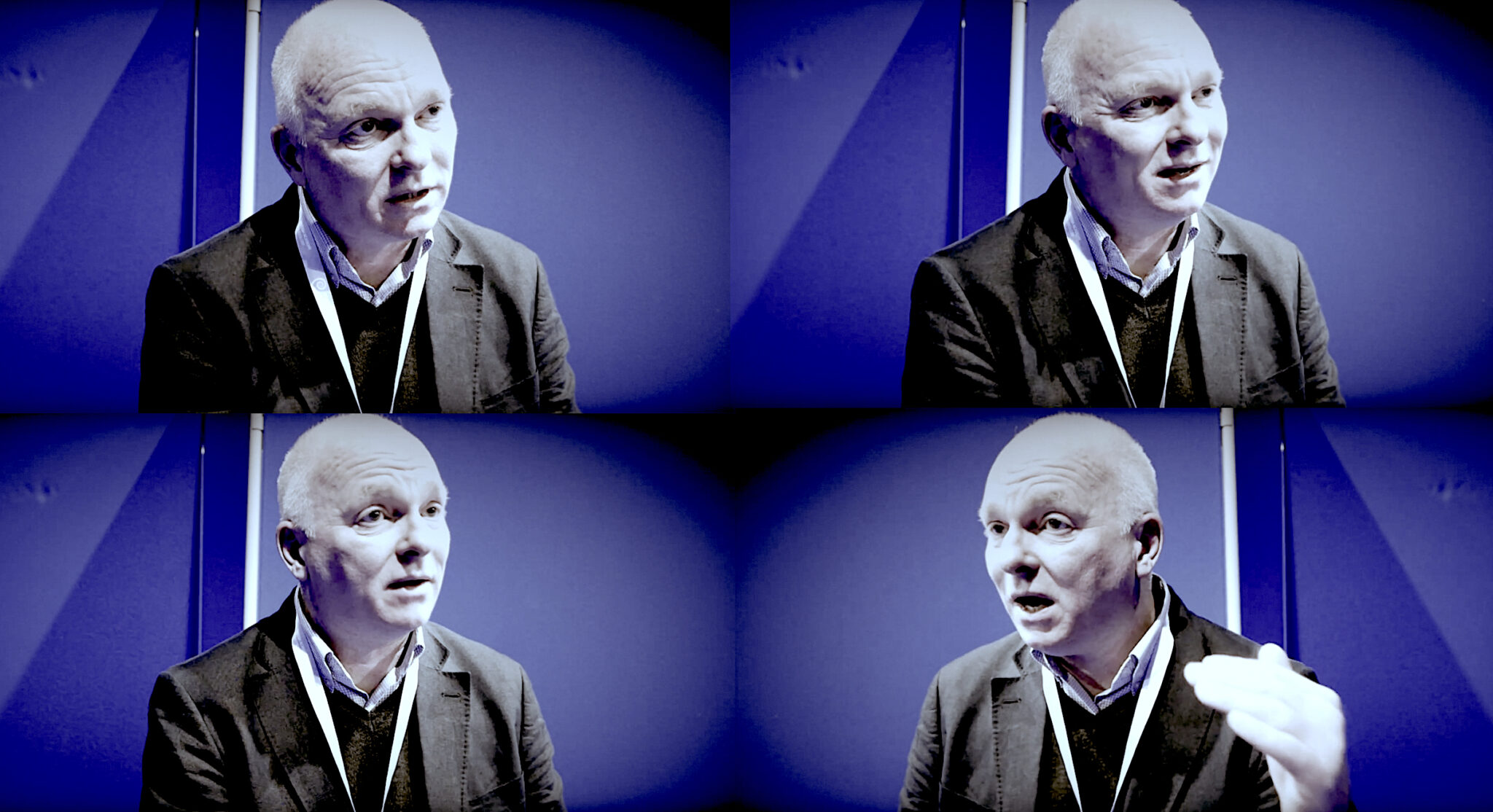Young Americans expose their hearing to high risk
Prevention
The latest study by the Hear the World Foundation reveals gaps in our knowledge surrounding hearing and hearing loss as well as the potential consequences for our ears.

Young Americans are exposing themselves to a high risk of losing their hearing with 60% of teenagers and young adults revealing they listen to at least an hour of music a day through headphones, 15% doing so at very high or maximum volumes.
Among the fascinating insights into our listening behavior found in the “How the World Hears” study conducted by the Hear the World Foundation is the revelation that of the 88% of Americans surveyed who agreed that good hearing is important to them, only 9% take steps to always protect themselves from everyday noise.
The Hear the World Foundation has addressed this issue in a far reaching international study of hearing habits titled “How the World Hears”. The survey shines a spotlight on our listening behavior and how aware we are about hearing and hearing loss.
Key facts at a glance:
- 60% of the young adults (16-24) surveyed in the US spend at least one hour a day listening to music through their headphones and 34% spend two hours or more. This was only exceeded by young Brazilians, of whom 64% spend at least one hour listening to music through headphones every day with 18% going for four hours.
- 15% of the young Americans surveyed (16-24) put their hearing at risk by listening to music through headphones at very high to maximum volume. However common sense appears to increase with age: Whereas 11% of 25- to 34-year-olds listen to music at very high to maximum volume, among 35- to 55-year-olds this figure is just 5%. Germany and Brazil lead the way in the 16-24 age group with 18% and 16% respectively listening to music and very loud volume.
- Only 9% of US respondents said that they always protect their ears from everyday noise (including traffic, aircrafts and building sites), for example by wearing earplugs or covering their ears. 24% of those surveyed do this only occasionally and 68% never protect their ears. At just 8%, the Swiss were the least likely to protect themselves from everyday noise.
- 58% of the Americans surveyed consider good hearing to be very important, with 30% deeming it simply to be important. The Brazilians seemed to be the most health conscious in this respect, with 86% saying that good hearing is very important to them. This stands in great contrast to their listening behavior.
- Only 38% of the Americans surveyed were aware that hearing loss is irreversible. The lowest levels of awareness are found in China, where only 14% know that damaged hair cells in the inner ear cannot be repaired.
- In all countries surveyed, there was great uncertainty as to whether or not hearing loss was age-related. 15% of the Americans surveyed speculated that hearing loss is something that only impacts on the elderly, with 22% saying that hearing loss can affect anyone. The fact is that the aging process is indeed the most frequent cause of hearing loss, with over half of us suffering from hearing loss by the time we reach 80. The second most common cause of hearing loss is everyday noise, something that people can easily protect themselves from.
“The results of this survey are very concerning, although based on my clinical experiences with children and young adults, I am not at all surprised,” said Jace Wolfe, PhD, Director of Audiology and Research, Hearts for Hearing Foundation, Oklahoma City, OK. “We routinely see teenagers with hearing loss that was formerly only seen in middle-aged and elderly persons or people who work in industrial or military environments with high-level noise. The configuration of their hearing loss strongly points toward noise as the cause, and when queried about their otologic history, they almost invariably report that they frequently listen to music at high levels under earphones. “I must say, however, that I am very encouraged that this survey found a direct link between people’s listening behaviors and their awareness of hearing loss and the dangers of high-level noise exposure,” he commented. “Obviously, it is imperative that healthcare professionals raise awareness of the importance of good hearing and of hearing preservation in order to prevent unnecessary hearing loss and the permanent, life-altering effects associated with it.”
Source: Hear the World Foundation


